GIỚI THIỆU VỀ CARD NVIDIA RTX A1000 8G GDDR6
Unleash the Power of RTX. Now for Every Workstation.
The NVIDIA RTX™ A1000 desktop GPU, powered by NVIDIA Ampere GPU architecture, combines powerful graphics, rendering, ray tracing, and AI capabilities that far exceed what desktop workstations with CPU-based integrated graphics can provide.
The RTX A1000 features 8GB of memory to empower professionals to maximize their productivity with the latest graphics-intensive software, AI-accelerated tools, and multi-app workflows from the desktop. It also enables an expansive visual workspace with quad display outputs. With 50% faster graphics performance than the previous generation, RTX A1000 GPUs provide full professional performance in a small form factor.
Performance Features
NVIDIA Ampere Architecture
NVIDIA RTX A1000 is the most powerful, single slot, low profile, professional solution for CAD, DCC, financial service industry (FSI) and visualization professionals looking to reach excellent performance in a compact and efficient form factor. Building upon the major SM enhancements from the Turing GPU, the NVIDIA Ampere architecture enhances ray tracing operations, tensor matrix operations, and concurrent executions of FP32 and INT32 operations.
CUDA Cores
The NVIDIA Ampere architecture-based CUDA cores bring up to 2.7X the single-precision floating point (FP32) throughput compared to the previous generation, providing significant performance improvements for graphics and rendering workflows such as 2D graphics, 3D model development, basic photo and video editing and compute for workloads such as data analysis and general productivity. RTX A1000 enables two FP32 primary data paths, doubling the peak FP32 operations.
2nd Generation RT Cores
Incorporating 2nd generation ray tracing engines, NVIDIA Ampere architecture-based GPUs provide incredible ray traced rendering performance. For the first time, NVIDIA is introducing RT Cores into a low profile, single slot form factor GPU. A single RTX A1000 board can render complex professional models with physically accurate shadows, reflections, and refractions to empower users with instant insight. Working in concert with applications leveraging APIs such as NVIDIA OptiX, Microsoft DXR, and Vulkan ray tracing, systems based on RTX A1000 will power truly interactive design workflows to provide immediate feedback for unprecedented levels of productivity. RTX A1000 is up to 3X faster in rendering performance (insert footnote – Arnold renderer) compared to the previous generation. This technology also speeds up the rendering of ray-traced motion blur for faster results with greater visual accuracy.
3rd Generation Tensor Cores
Purpose built for modern workflows, RTX A1000 includes enhanced Tensor Cores as part of the Ampere GPU architecture that accelerate more datatypes that delivers up to 3X the generative AI performance compared to the previous generation. 3rd-gen Tensor Cores will accelerate the TF32 and BFloat16 precision modes. Independent floating-point and integer data paths allow more efficient execution of workloads using a mix of computation and addressing calculations.
PCIe Gen 4
RTX A1000 supports PCI Express Gen 4, which provides double the bandwidth of PCIe Gen 3, improving data-transfer speeds from CPU memory for data-intensive tasks like AI and data analysis.
Higher Speed GDDR6 Memory
Equipped with 8GB GDDR6 memory and faster memory clock, the RTX A1000 provides an ideal memory footprint to address datasets and models in latency-sensitive professional applications and at volume.
5th Generation NVDEC Engine
NVDEC is well suited for transcoding and video playback applications for real-time decoding. The following video codecs are supported for hardware-accelerated decoding: MPEG-2, VC-1, H.264 (AVCHD), H.265 (HEVC), VP8, VP9, and AV1.
7th Generation NVENC Engine
NVENC can take on 4K or 8K video encoding tasks to free up the graphics engine and the CPU for other operations. The RTX A1000 provides better encoding quality than software-based x264 encoders.
Graphics Preemption
Pixel-level preemption provides more granular control to better support time-sensitive tasks such as VR motion tracking.
Compute Preemption
Preemption at the instruction-level provides finer grain control over compute tasks to prevent long-running applications from either monopolizing system resources or timing out.
NVIDIA RTX IO
Accelerating GPU-based lossless decompression performance by up to 100x and 20x lower CPU utilization compared to traditional storage APIs using Microsoft’s DirectStorage for Windows API. RTX IO moves data from the storage to the GPU in a more efficient, compressed form, improving I/O performance.
THÔNG SỐ KỸ THUẬT VỀ CARD NVIDIA RTX A1000 8G GDDR6
| GPU Architecture | NVIDIA Ampere Architecture |
| CUDA Parallel Processing cores | 2,304 |
| NVIDIA Tensor Corese | 72 |
| NVIDIA RT Cores | 18 |
| Single-Precision Performance1 | 6.74 TFLOPS |
| RT Core Performance1 | 13.2 TFLOPS |
| FP16 Tensor Performance1 | 53.8 TFLOPS2 |
| GPU Memory | 8GB GDDR6 |
| Memory Interface | 128-bit |
| Memory Bandwidth | 192 GB/s |
| Max Power Consumption | 50W |
| Graphics Bus | PPCI Express 4.0 x8 3 |
| Display Connectors | mDP 1.4 (4) |
| Form Factor | 2.7” H x 6.4” L Single Slot |
| Product Weight | 140 g (Low Profile Bracket) 146 g (ATX Bracket) |
| Thermal Solution | Active |
| NVENC | NVDEC | 1x | 2x (+AV1 encode & decode) |

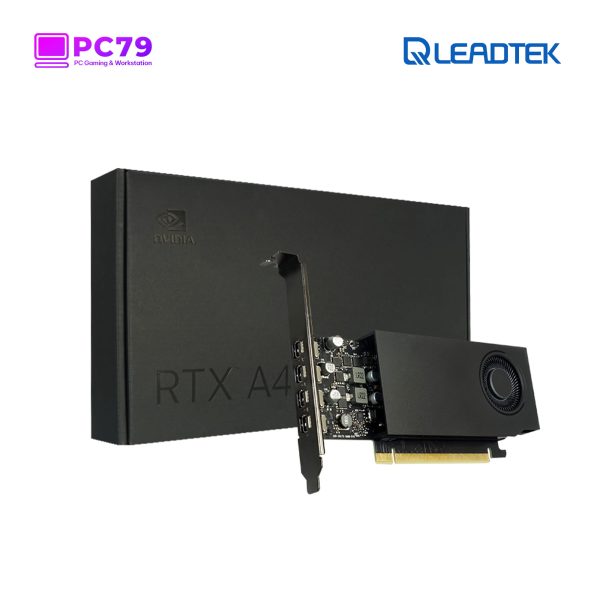
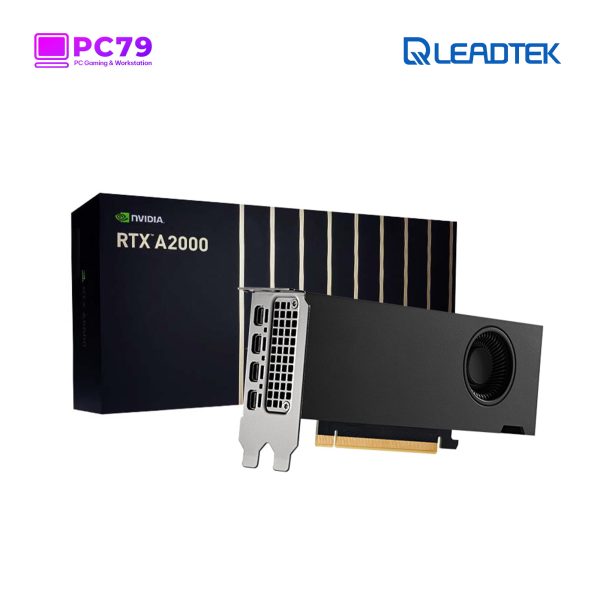
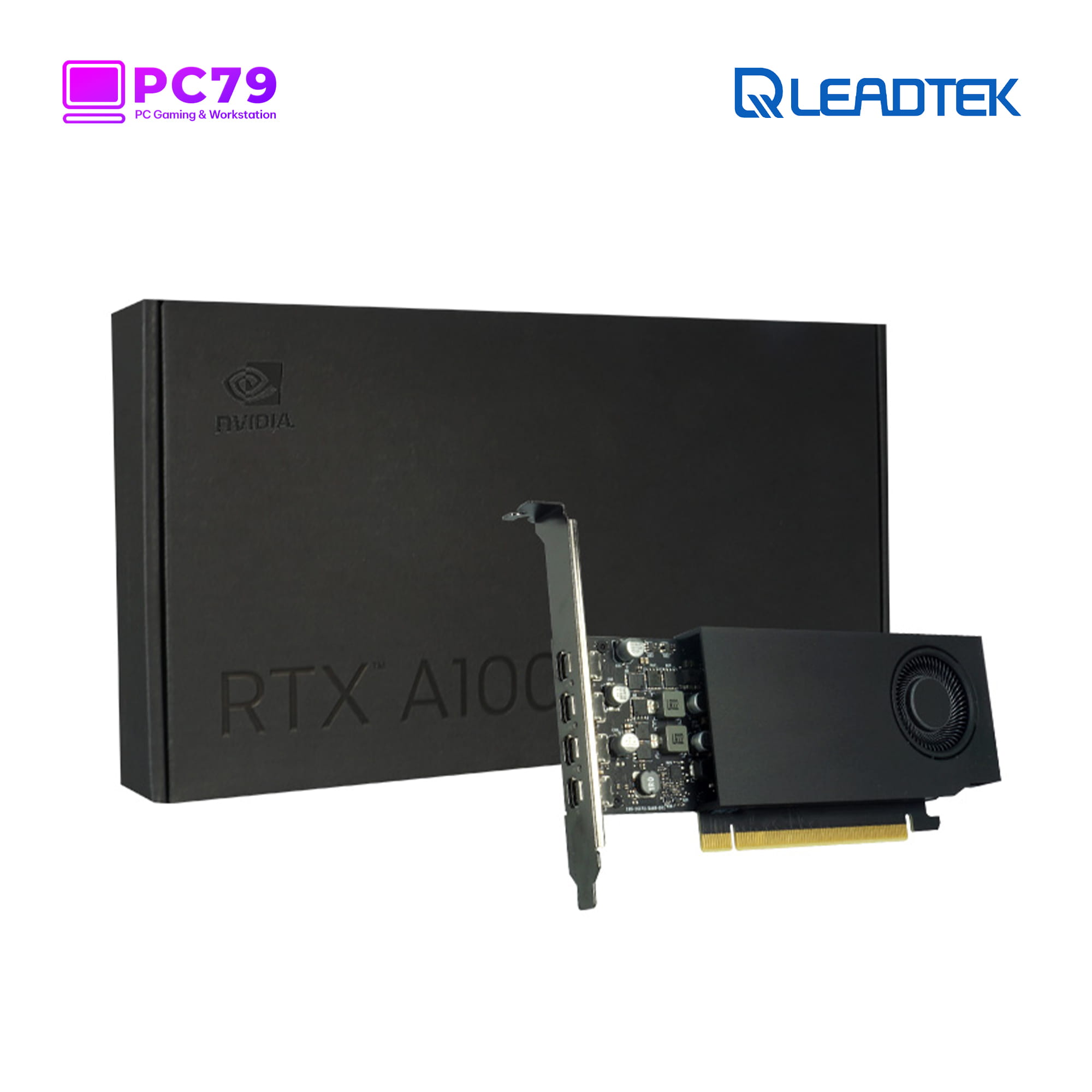
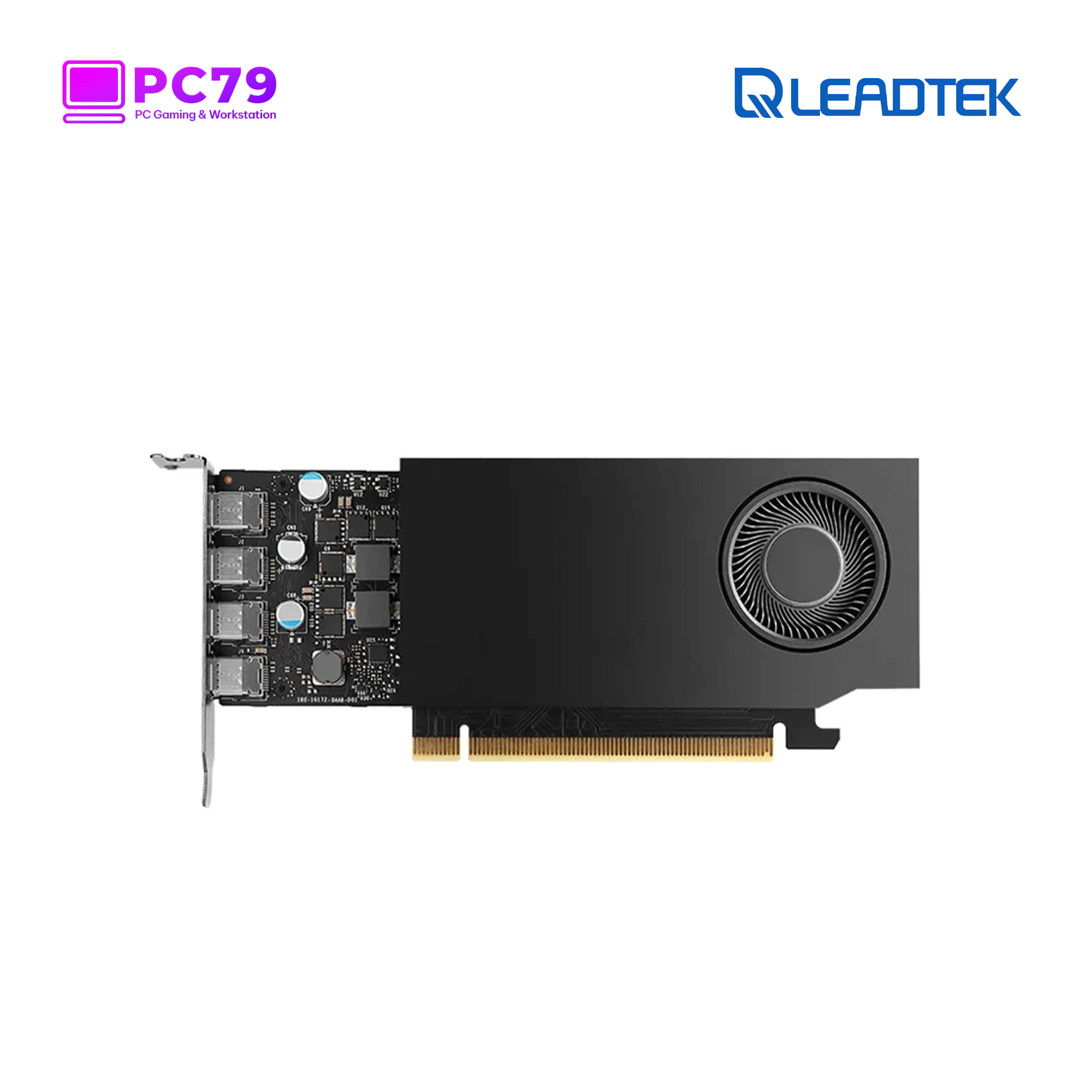
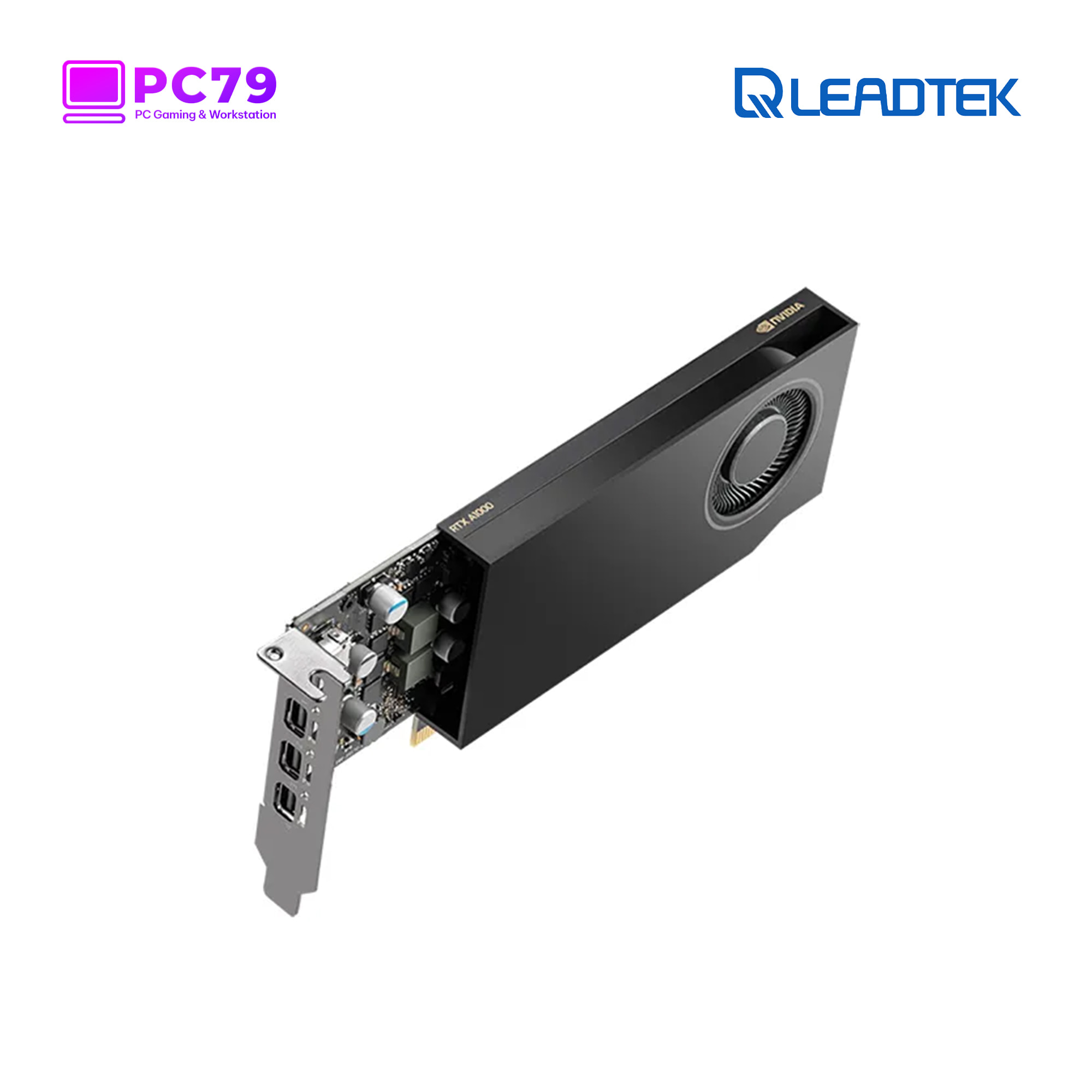
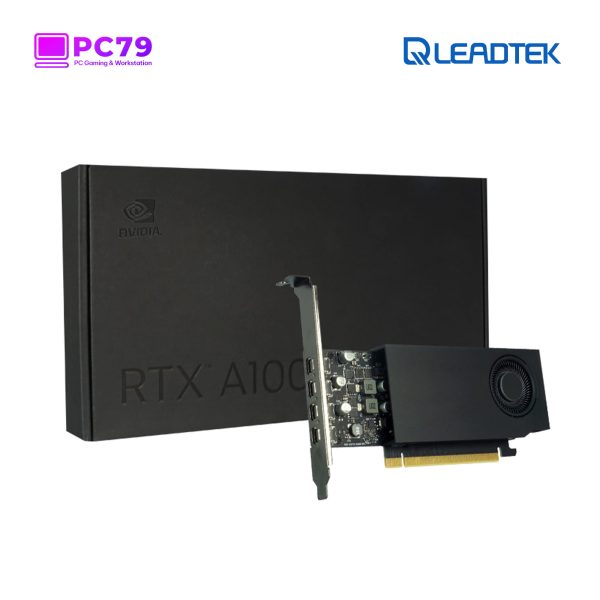
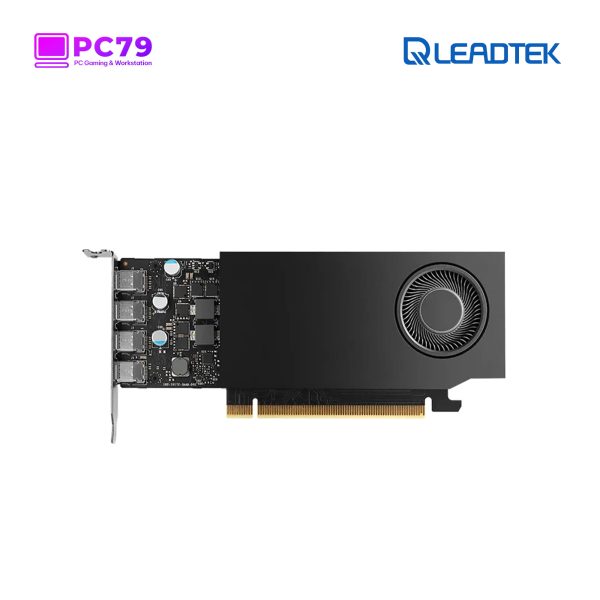
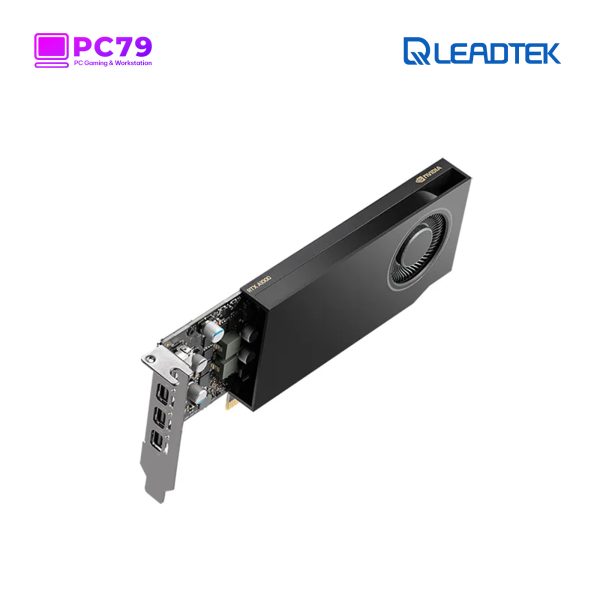












Đánh giá
Xóa bộ lọcChưa có đánh giá nào.